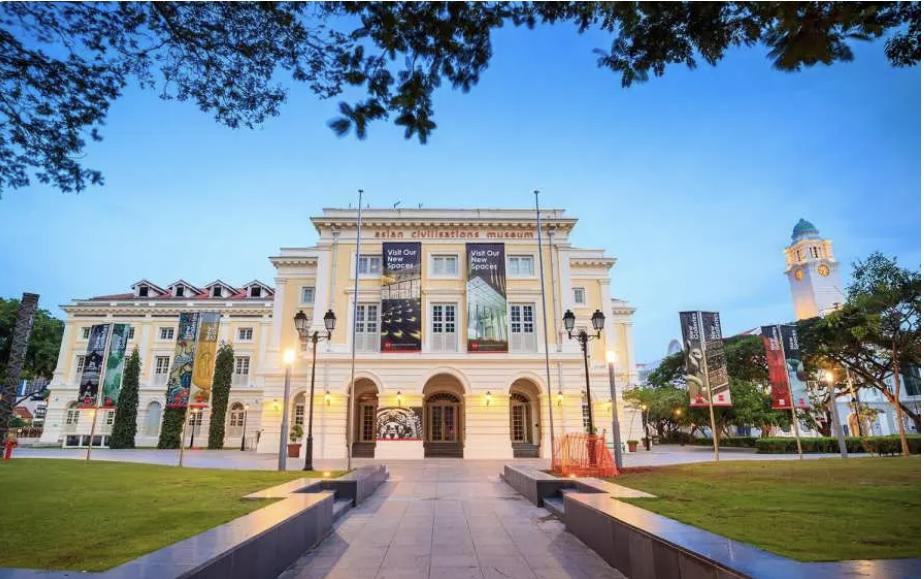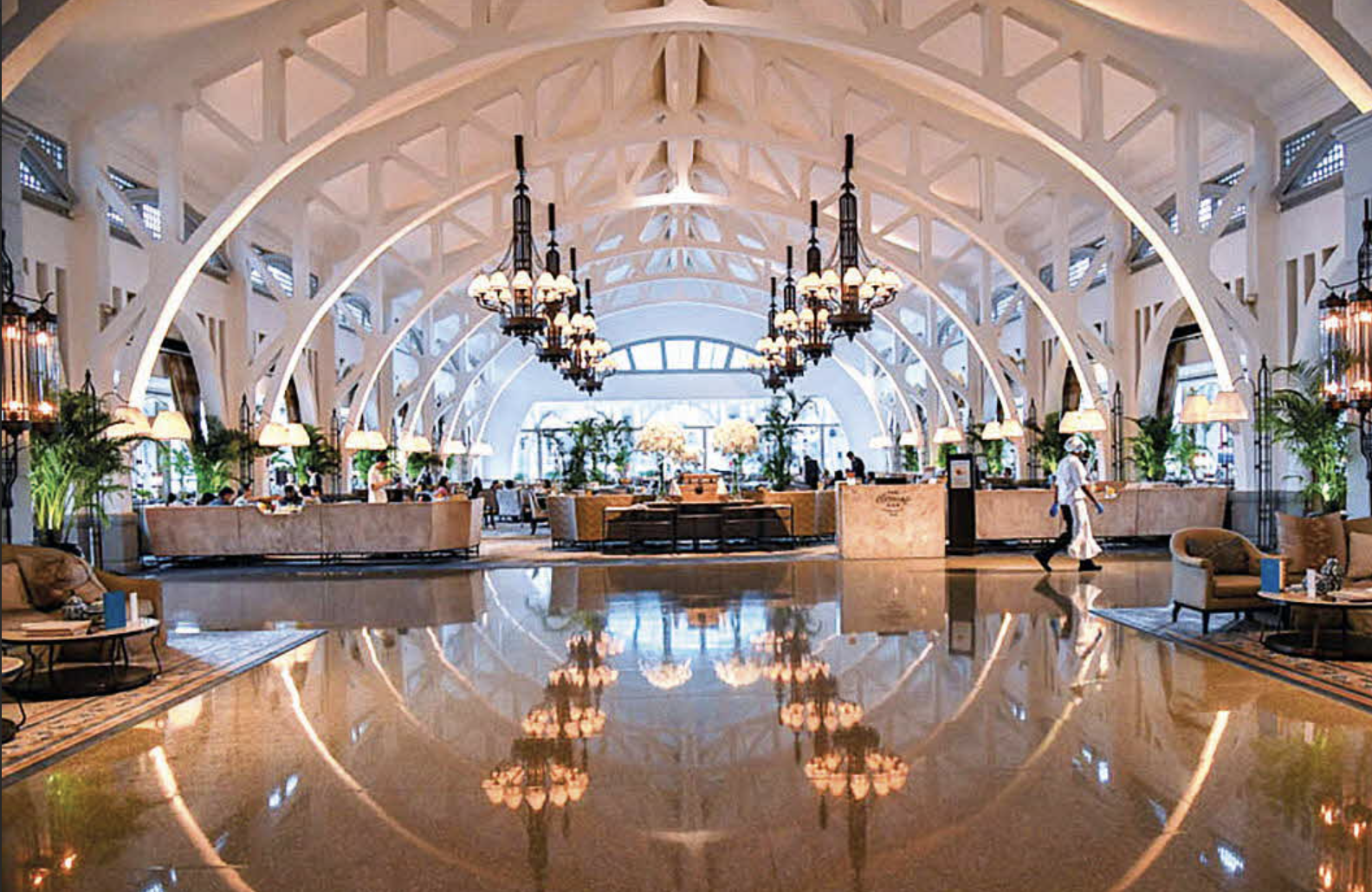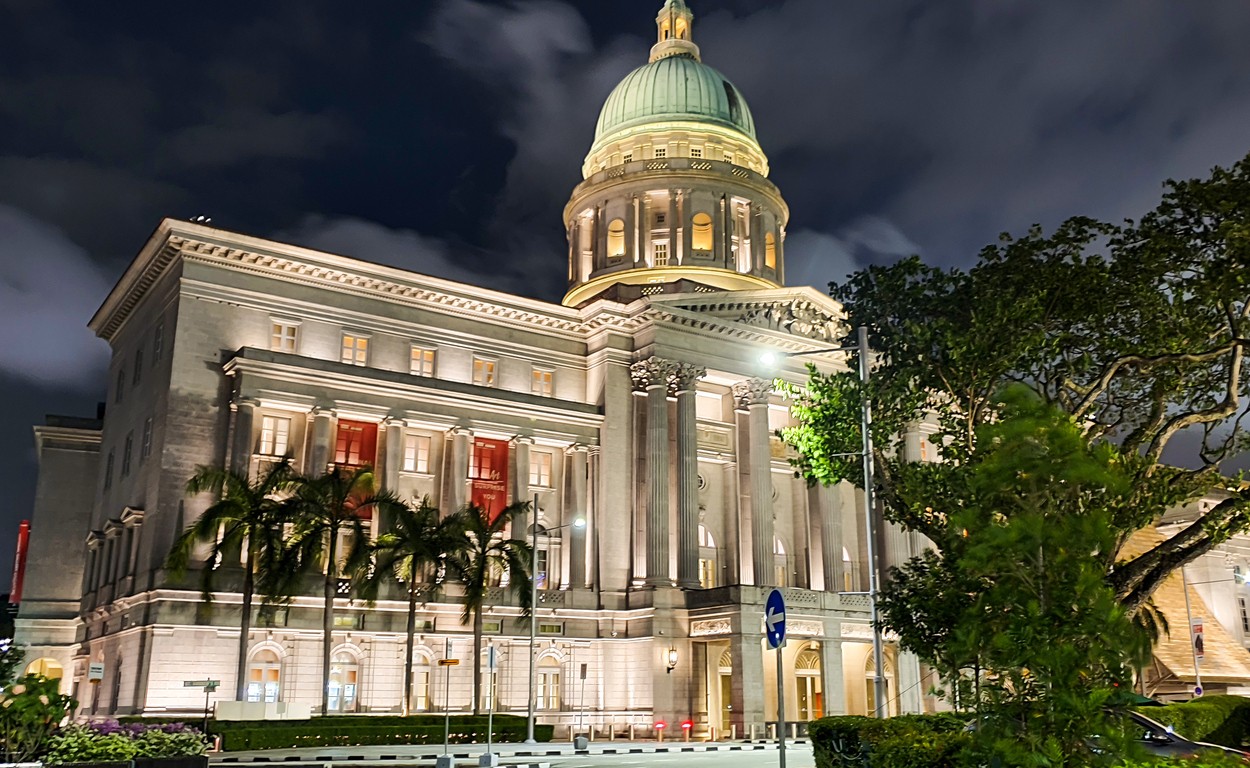
PROFESSIONAL PROGRAMME
The Conference Programme will be regularly updated with further details in due course.
CALL FOR SPEAKERS
The Attorney-General's Chambers of Singapore invites proposals from IAP members who are interested in giving a presentation during a Plenary Session or Workshop at the conference to submit an abstract for consideration by the Professional Programme Committee for inclusion in the programme of the 30th Annual Conference and General Meeting of the International Association of Prosecutors.
In addition to the Call for Speakers for the Plenary Sessions and Workshops, the IAP and the Professional Programme Committee are now also inviting proposals from all IAP members who are interested in giving a presentation during the Special Interest Sessions of the conference to submit an abstract for consideration for inclusion in the programme by the Professional Programme Committee. In addition, we are seeking Expressions of Interest from IAP members who would be interested in assisting to organise and chair one of the below Special Interest Sessions.
The Special Interest Sessions are on the following topics:
i. Junior prosecutors: The session topic is “The Ethical Tightrope – Navigating moral dilemmas and professional pressures as a junior prosecutor”.
ii. Human trafficking: In an increasingly volatile, uncertain, complex and ambiguous environment, this session will examine how law enforcement agencies and prosecutors can foster better cooperation across borders to combat trafficking in persons.
iii. Trauma-informed justice – Safeguarding victims in legal proceedings: The session topic is “How can law enforcement agencies and prosecutors protect victims’ wellbeing in legal proceedings without compromising the pursuit of justice?”. Many victims of crime come to court in vulnerable and difficult circumstances. However, the traditional adversarial nature of criminal legal proceedings often inflicts secondary trauma on victims through compelling them to recount past experiences during cross-examination. There is a need to protect vulnerable victims (such as children and those with physical/mental conditions) as well as victims of sexual crimes. How can prosecutors ensure that these victims are safeguarded? Delegates are encouraged to discuss how this can be achieved (a) at a pre-trial level during investigations and witness interviews; (b) during court proceedings; and (c) with post-trial support options and intra-agency collaboration.
If you wish to be considered as a speaker for one of the above Special Interest Sessions, please submit a short proposal, in English, containing a description of the proposed presentation for consideration by the Professional Programme Committee. Please specify which Special Interest Session you wish to participate in, and include full details of your name, job title and prosecuting agency. Priority will be given to presentations that have a strong practical and operational focus, and presentations that include case examples are particularly welcome. If selected, your presentation should last for no longer than 15 minutes.
If you wish to organise and chair one of the Special Interest Sessions, please send an email setting out a brief description of your experience in the relevant topic.
All proposals and Expressions of Interest should be sent to gc@iap-association.org. The deadline is Friday 06 June 2025.
CONFERENCE THEME
THE VERSATILE PROSECUTOR AND THE ADMINISTRATION OF CRIMINAL JUSTICE
The criminal justice landscape is constantly evolving. As criminals continue to exploit technology and innovation to commit and conceal their crimes, it is the versatile prosecutor who will bring them to justice. To this end, the versatile prosecutor scans the horizon for emerging crime trends, develops deep specialist expertise and cross-cutting capabilities, adapts to the use of technology effectively and strengthens global networks to improve international cooperation.
Organised criminal syndicates continue to circumvent concerted efforts by law enforcement authorities, governments, the financial sector and the private sector to further their illicit activities, and to exploit legal and procedural loopholes to conceal their assets and evade detection. Parties in the criminal justice sphere are in a never-ending race to identify new crime trends and stay ahead of the curve in terms of prevention, detection and prosecution.
PLENARY AND WORKSHOP SESSIONS (ONE)
Plenary Session One: Turning the Tables on New Forms of Crime
The novel and creative ways in which criminals exploit new technology know no boundaries. Whilst technology and globalisation have facilitated trade and contributed to a thriving global economy, criminal syndicates have relied on the same to achieve their nefarious goals.
This plenary session will explore the use of new technology in the commission and prosecution of crimes. It will examine the ways in which criminals exploit new technologies and AI to facilitate the commission of both traditional and newly emerging types of crime. It will also consider how law enforcement and prosecution agencies use new technology to investigate and prosecute crimes effectively.
The workshop sessions will then discuss the use of new technology in the courtroom.
Workshop One will be divided into two sessions covering:
A) Technological advancements and the presentation of evidence. The digital transformation of the courts and prosecution offices has the potential to revolutionise and streamline the preparation of cases and the conduct of trials. This session will explore how technological advancements (including AI) can be used to enhance the management of cases, and to effectively present and explain complex, voluminous data clearly and concisely to a tribunal of fact, through both data visualisation and informational processing. Prosecutors may wish to present on technological advancements in their jurisdictions which have changed the conduct of criminal cases for the better – for example, the use of virtual courtrooms, remote proceedings, digital jury bundles, and digital case management systems.
B) Obtaining and using expert digital evidence. As law enforcement agencies ramp up the use of technology in the detection of criminal activity, this also generates new types of digital evidence with which prosecutors must familiarise themselves and which will need to be adduced through the use of experts. Prosecutors must recognise the potential admissibility and reliability challenges that may be raised and understand how to address them, and recognise how to use AI within the criminal justice system responsibly. They must also understand the interplay between the obtaining and use of digital evidence, human rights, and data privacy considerations. Prosecutors presenting in this workshop may wish to focus on technological advancements in their jurisdiction which have impacted the way such evidence is collected, analysed, and used.
PLENARY AND WORKSHOP SESSIONS (TWO)
Plenary Session Two: Strengthening international cooperation – Best practices and innovative approaches to tackle barriers to effective international cooperation
With criminals utilising advanced technologies to carry out and conceal transnational offences, the detection and prosecution of such crimes must similarly become increasingly sophisticated. International cooperation is, more than ever before, an important dimension of the fight against such crimes. From the uncovering of criminal activity to the seizure of proceeds of crime, cooperation and collaboration between different jurisdictions is crucial to the effective investigation and prosecution of any case.
This plenary session will share current best practices in international cooperation and discuss new avenues to address ongoing challenges. Some challenges are perennial, such as the differences in legal / judicial systems, processes and standards, language barriers and the impact of political and socio-economic factors, whereas other challenges, such as the volume of digital evidence, are new. This session will consider how we can revitalise cooperation between States in a digital age, how AI and technology can improve international cooperation, and will seek to identify solutions to some of the challenges that are faced in tackling criminal activity that spans borders.
The workshop sessions will then share practical examples of international cooperation in the arena of cybercrime and the identification and recovery of the proceeds of crime.
Workshop Two will be divided into two sessions covering:
A) Asset tracing and seizure. Identifying and seizing criminal assets is crucial as a mechanism to disrupt criminal enterprises, send a message of deterrence, enable funds to be available to compensate victims of crime, and to tackle corruption and organised crime. This session will cover how countries can work together to identify, freeze, and seize assets (including cryptocurrency) quickly and effectively.
B) International cooperation to tackle cyber offences – Practical examples. Cybercrime is borderless, and so it is essential to share intelligence, evidence and best practice across jurisdictions to track, arrest and prosecute cybercriminals more effectively. This session will focus on the prosecution of cybercrime and how the current best practices in international cooperation can be developed to meet the unique challenges such crimes pose to prosecution agencies.
PLENARY AND WORKSHOP SESSIONS (THREE)
Plenary Three: Future-proofing prosecutors
Increasingly, prosecutors are expected to have a degree of professional expertise in multiple non-legal fields, such as forensic accounting, forensic data extraction, psychology, pathology, and criminology. Transnational organised crime also presents unique challenges to the prosecutor, who has to adapt his or her case strategy to the available evidence.
This plenary session will examine the need for specialist expertise and cross-cutting capabilities, including in relation to skills development, the use of specialist prosecution teams, multi-agency working and emerging areas of specialism.
- Future proofing enforcement and prosecution efforts requires significant resources and strong leadership. Resources are needed to upskill investigators and prosecutors to detect new crimes, and to understand the criminals’ modus operandi and prosecute them. Prosecutors must be more adept at supporting vulnerable witnesses, enabling them to give their best evidence, and prosecution services must develop innovative approaches to ensure that forward-looking strategies are in place and are balanced appropriately with other competing needs.
The workshop sessions will then discuss practical tips for bringing future-proofing to the individual level.
Workshop Three will be divided into two sessions covering:
A) Legal education and training. As workloads increase, there is a risk that the professional development of prosecutors is deprioritised. However, given the ever-changing criminal landscape, it is vital that prosecutors remain abreast of legal and technological developments. This session will consider different training techniques to future-proof prosecutors, including the use of online education tools and different pedagogical techniques for legal education, and the attendant challenges including a lack of resources, workload, and a rapidly changing legal landscape. The session will brainstorm potential solutions to these challenges, ensuring that prosecutors’ knowledge remains up-to-date.
B) Mental Wellness and Resilience. As well as ensuring that prosecutors have the necessary skills and tools for their role, it is also vital to ensure that their mental wellbeing and resilience is protected. Increasing caseloads, limited resources, and exposure to distressing evidence can all impact on the mental wellness of prosecutors, with negative consequences for their own health and for their ability to carry out their functions. - This session will examine the importance of prioritising the mental wellbeing of prosecutors, and consider mechanisms that can be put in place to mitigate the risks associated with stress and burnout.
SOCIAL NIGHT PROGRAMME
Opening Ceremony and Welcome Reception
| Date | Sunday, 7 September 2025 |
|---|---|
| Time | 18:30 - 19:30 hrs (Opening and 1st Award Ceremony) 19:30 - 21:30 hrs (Drinks/Finger food) |
| Venue | The Shangri-La Hotel, Singapore |
| Dress Code | Business attire / National dress |

Gala Dinner
| Date | Monday, 8 September 2025 |
|---|---|
| Time | 19:30 - 22:30 hrs |
| Venue | Gardens by the Bay, Flower Field Hall |
| Dress Code | Business attire / National dress |
The Gala Dinner will be held at the Flower Field Hall in Gardens by the Bay. Set within the picturesque Flower Dome, the Flower Field Hall in Singapore’s Gardens by the Bay offers full views of the perpetual blooms at Flower Field on one end and a spectacular panorama of the Marina Bay skyline on the other. Specially programmed LED lights illuminate the hall with different colours of the rainbow, adding to the enchanting setting for the Gala Dinner.
Distance from Shangri-La Hotel: 8.6 km

Professional Networking Night
| Date | Tuesday 9 September 2025 |
|---|---|
| Time | 18:15 - 20:15 |
| Venue | Asian Civilisations Museum, River Room and Terrace |
| Dress Code | Business attire/National dress |
The Professional Networking Night will be held at the Asian Civilisations Museum, River Room and Terrace. At the River Terrace of the Asian Civilisations Museum, guests can enjoy a relaxing outdoor cocktail while taking in stunning views of the Singapore River, Boat Quay, and Central Business District. Completed in 1867, this neoclassical-style building has a storied past, having housed government offices both during colonial times and in post-independence Singapore.
Distance from Shangri-La Hotel: 5 km

Farewell Reception
| Date | Wednesday, 10 September 2025 |
|---|---|
| Time | 20:00 - 23:00 |
| Venue | Clifford Pier |
| Dress Code | Smart casual/National dress |
The Farewell Reception will be hosted at the Clifford Pier. Occupying the former landing point of Singapore’s forefathers, the Clifford Pier is a heritage site that exudes timeless elegance of bygone eras past. With its grand arches, graceful chandeliers and Art Deco-style architecture, it offers an extraordinary setting for the farewell reception.
Distance from Shangri-La Hotel: 5.3 km

ABOUT THE PARTNERS PROGRAMME
Partners of registered participants are warmly welcome to take part in the Conference's Social and Cultural Programme, subject to payment of the applicable fee.
For registration purposes, the term partner refers exclusively to a spouse or a long-term life partner in a committed relationship. In line with the policy adopted by the IAP Executive Committee in 2019, other family members—including children—do not fall within the scope of eligible accompanying persons.
This policy is intended to preserve the professional integrity of IAP events and to ensure that all conference activities remain focused, inclusive, and conducive to meaningful professional engagement. We appreciate your understanding and cooperation in upholding this standard.
SINGAPORE PARTNERS PROGRAMME
This year, our host has very generously decided to provide a full spouse/partner programme. These activities are thoughtfully designed to offer accompanying partners the opportunity to explore and enjoy the cultural richness of Singapore while delegates are participating in the main conference programme.
Please note that the programme is limited to a maximum of 80 participants, and places will be allocated on a first-come, first-served basis.
Partners registering for the programme will also be entitled to attend the following evening events:
- Welcome Reception and the Shangri-La Hotel Singapore (Sunday, 7 September 2025)
- Gala Dinner at the Gardens by the Bay, Flower Field Hall (Monday, 8 September 2025)
- Farewell Reception at Clifford Pier (Wednesday, 10 September 2025)
These events offer a valuable opportunity to engage with the broader conference community in a relaxed and social setting.
Visit to the Singapore Oceanarium
| Date | Monday, 8 September 2025 |
| Time | 10:00 - 14:30 |
| Venue | Singapore Oceanarium, 8 Sentosa Gateway, Sentosa Islands |
| Shuttle Bus Service | Departs from the Shangri-La Hotel at 10:00 hrs. |
| Dress Code: | Comfortable clothes and practical footwear |
|
Participants will have the opportunity to explore the Singapore Oceanarium, one of the world’s most immersive marine life experiences, located on the resort island of Sentosa. This tour offers an immersive experience at one of the region’s leading marine institutes, dedicated to inspiring awareness and action for ocean and aquatic life. Through a combination of live marine habitats, interactive technology, and digital storytelling, the Oceanarium fosters deeper understanding of marine ecosystems and conservation efforts. Following the visit to the Oceanarium, participants can also visit other attractions on Sentosa island and enjoy lunch at their own leisure and expense at the wide range of dining options available within Resorts World Sentosa. Explore more at: RWS Dining Options. |
|
Visit the National Gallery Singapore
| Date | Tuesday, 9 September 2025 |
| Time | 10:00 - 14:30 |
| Venue | National Gallery Singapore, 1 Saint Andrew's Road |
| Shuttle Bus Service | Departs from the Shangri-La Hotel at 10:00 hrs. |
| Dress Code: | Comfortable clothes and practical footwear |
|
Participants will have the opportunity to explore the National Gallery Singapore, located in the heart of the Civic District. Housed in the beautifully restored City Hall and former Supreme Court buildings, the Gallery spans 64,000 square metres and showcases Singapore’s rich heritage through its extensive collection. It also features the world’s largest public display of modern Southeast Asian art, situating regional works in a global context. Participants will enjoy a one-hour guided tour, followed by one hour of free-and-easy exploration. Lunch will be at your own cost, with a variety of dining options available nearby at Chijmes, Funan, and Raffles City. |
|

